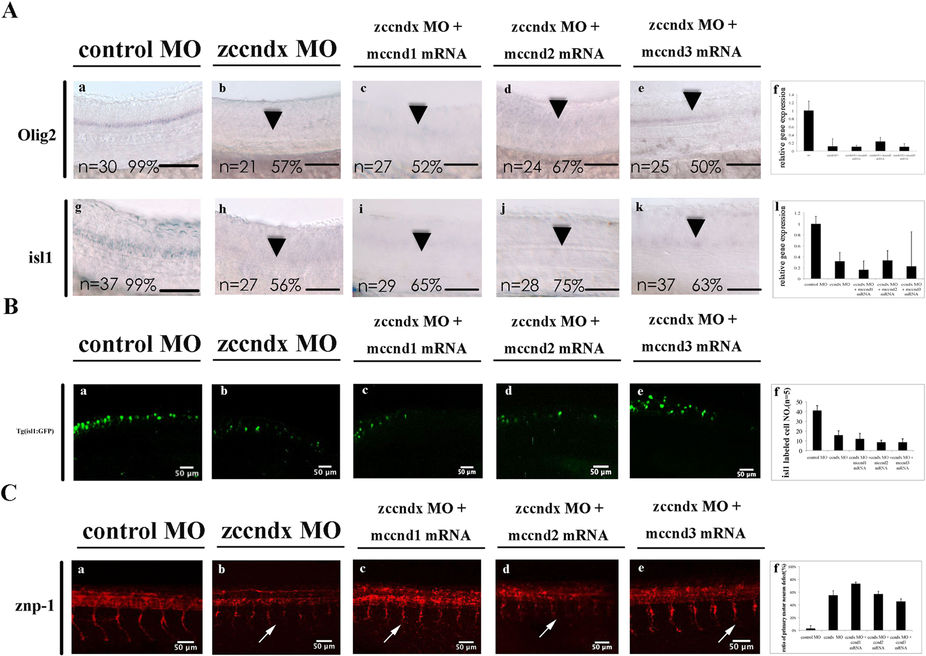Fig. 6
Mouse cyclin D1, D2, and D3 cannot compensate for the loss of zebrafish cyclin Dx.
(A) MO knockdown of ccndx reduced the isl1 and olig2 signals in motor neurons (panels a, b, g, and h); co-injection of mouse ccnd1, ccnd2, and ccnd3 mRNA had no effect, as shown in panels c to e and i to k. Panels r and l: graphs showing the qPCR analysis confirmed the results of morphants with signals lower than control MO-injected embryos at 24 hpf. *P?<?0.05. Scale bar, 100?mm. (B) A significant number of ccndx morphant embryos contained fewer GFP-labeled primary motoneurons as compared to ccndx morphants (panels a and b) in the Tg:(isl1:GFP) transgenic line, and co-injection of mouse ccnd1, ccnd2, or ccnd3 mRNA was unable to rescue this defect (panels c, d, and e). Panel f: graph showing the quantitative results of GFP-labeled primary motoneurons cells at 24 hpf. (C) A significant number of ccndx morphant embryos exhibited shorter primary motor axons as compared to ccndx morphants (panels a and b), and co-injection of mouse ccnd1, ccnd2, or ccnd3 mRNA was unable to rescue this defect (panels c, d, and e). Panel f: graph showing the proportion of embryos with signals lower than those in control MO-injected embryos at 24 hpf.

